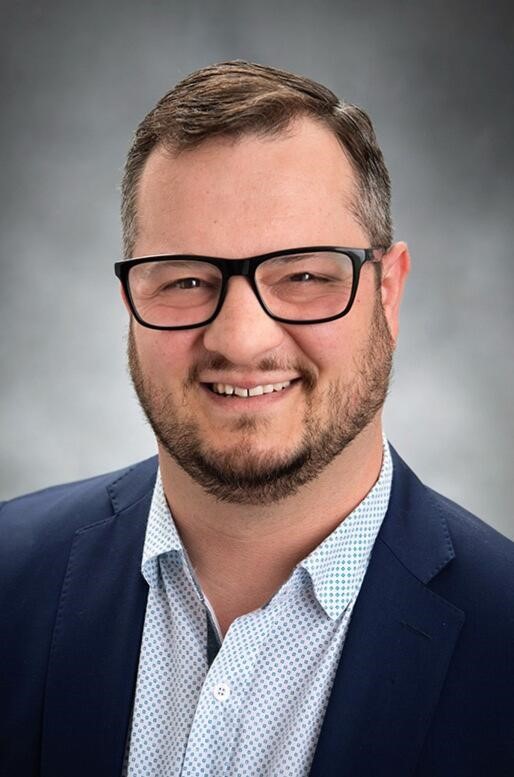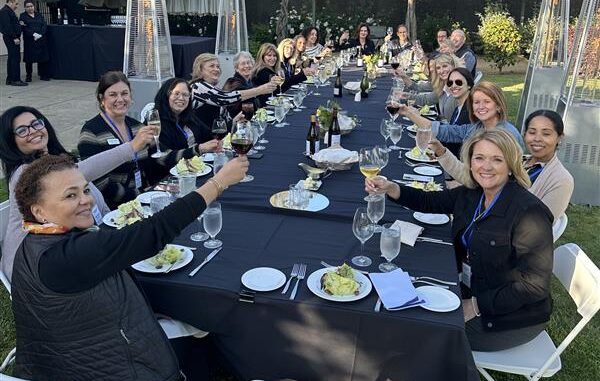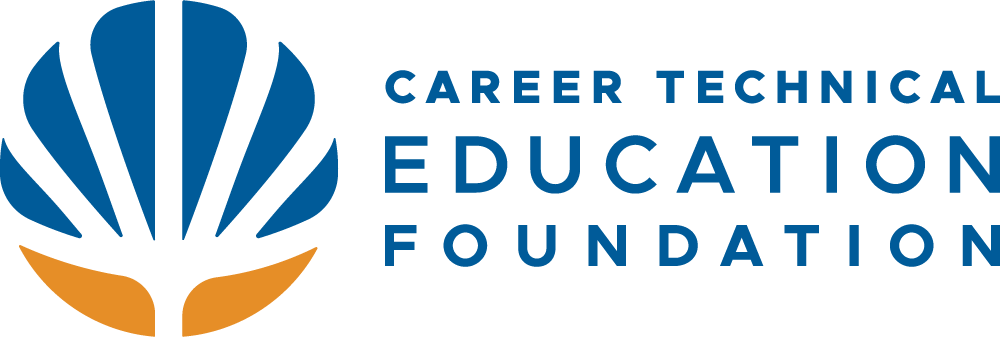Connected learning gives students exciting ways to pursue their ambitions. At CTE Foundation, we believe in the power of targeted...
Read MoreNews & Updates
Uncategorized
CTE Foundation Announces New Executive Director
Career Technical Education (CTE) Foundation is pleased to announce the appointment of Eli Weinzveg as the organization’s new Executive Director....
Read MoreFoundations from Across the Country Convene in Santa Rosa to Address Skilled Trades Education and Training
Last week, the Career Technical Education (CTE) Foundation of Sonoma County proudly hosted the first-ever in-person convening of the Skilled...
Read MoreFoundations from Across the Country Convene in Santa Rosa to Address Skilled Trades Education and Training
Last week, the Career Technical Education (CTE) Foundation of Sonoma County proudly hosted the first-ever in-person convening of the Skilled Trades Funders Kitchen Table, welcoming approximately 19 funders from across the nation to collaborate on the growing importance of skilled trades education and workforce development. This convening was led by the Smidt Foundation and Harbor Freight Tools for Schools. What began as
Sonoma Clean Power Customers Help Reduce Demand
This Summer, 7,000 Sonoma Clean Power Customers Will Help Reduce Demand on California Grid SCP customers earn rewards for decreasing energy usage when demand for electricity is high. SANTA ROSA, CALIF., July 18, 2023 – Sonoma Clean Power (SCP), the Community Choice Aggregator serving Sonoma and Mendocino counties in Northern California, recently launched a new offering for its residential customers aimed at
10,000 Degrees and CTE Foundation Announce Formal Partnership to Support Students’ Higher Education and Career Pathways
10,000 Degrees and Career Technical Education (CTE) Foundation are excited to announce their formal partnership to support students enrolled in a two-year career readiness program. This partnership builds on the two organizations’ long-standing collaboration and shared mission of supporting student success in pursuit of higher education and careers. Sonoma Corps is a CTE Foundation program consisting of a career prep class during
Local students showcase projects at event that raises more than $300,000 for Career Technical Education
Santa Rosa, California – A week ago, on Wednesday, May 10, Career Technical Education (CTE) Foundation held the seventh annual Spark the Future, a fundraising event and student showcase supporting career-connected education and pathway programs for Sonoma County students. Nearly 300 attendees, including local high school students, business leaders and partners, elected officials, educators, and more gathered at Saralee & Richard’s Barn
CTE Foundation awards $100k in grants to local educators for hands-on learning
Santa Rosa, Calif. – CTE Foundation announced on Wednesday that it is awarding $101,150 in grants to support Sonoma County initiatives to increase student engagement and connect classroom learning to real-world careers during the 2023-2024 school year. 12 schools and the Sonoma County Office of Education received grants. Those grants will fund a new culinary pathway at Santa Rosa Middle School, the
Career Technical Education (CTE) Foundation announces new officers for 2023 and four new Board Directors: Andriana Duckworth, Arif Virji, Hector Velazquez, Erica Torgerson
Sonoma County’s local career-connected learning nonprofit has elected Lee Alderman as chair of the 2023 Board of Directors for Career Technical Education (CTE) Foundation. Alderman, a retired Assistant Vice President for Redwood Credit Union, served as vice chair in 2022 and has been on Career Technical Education (CTE) Foundation’s board since 2014. Also announced today were four recently elected directors of the
Life Comes Full Circle
By Jocelyn Camacho Last fall, I heard a radio commercial promoting Girls Tinker Academy for middle school kids. What an awesome program, I thought to myself. As a recent high school graduate, I wasn’t eligible to attend. But I was determined to find a way to get involved. I reached out to the organizers at CTE Foundation, whom I already knew from
A Decade of Innovating the Education-to-Career Experience
CTE Foundation Celebrates 10th Anniversary Leader in career education marks major milestone during CTE Month® Career Technical Education (CTE) Foundation, a leader in career education and partner for economic and workforce development in Sonoma County, is highlighting this month’s national observance of career technical education by launching a year-long celebration to mark its 10th anniversary. In 2012, CTE Foundation was founded in
Open Positions at CTE Foundation
Join a dynamic, forward-thinking organization on a mission to innovate the education-to-career experience such that all Sonoma County students have rewarding careers that strengthen their lives, our community and the workforce. Thank you for your interest in working at CTE Foundation! We do not currently have any job openings. ABOUT CTE FOUNDATION Career Technical Education Foundation (CTE Foundation) is among the fastest growing
Overview Video: Sonoma Corps 2-year Gap Program
In July, a small group of CTE Foundation staff participated in a mini “road show” to celebrate the Sonoma Corps program and present each of the successful graduates with scholarship checks. Ten graduates of the program are receiving a total of $50,000 in scholarship funding for completing the pilot work readiness program which includes a “gap year” internship following high school.
Share:
Most Popular:
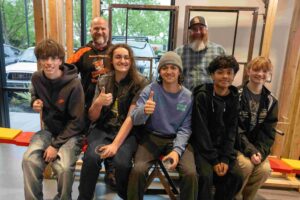
Santa Rosa High is Building Futures with Connected Learning in the Trades
Connected learning gives students exciting ways to pursue their ambitions. At CTE Foundation, we believe in the power of targeted investment to spark change, transforming our education system into an
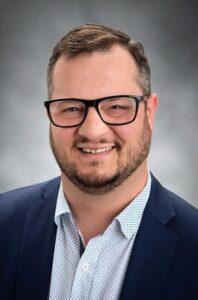
CTE Foundation Announces New Executive Director
Career Technical Education (CTE) Foundation is pleased to announce the appointment of Eli Weinzveg as the organization’s new Executive Director. Weinzveg, will begin his new role on June 20th, succeeding
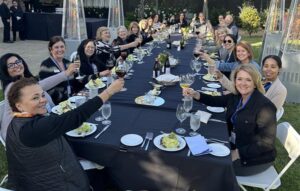
Foundations from Across the Country Convene in Santa Rosa to Address Skilled Trades Education and Training
Last week, the Career Technical Education (CTE) Foundation of Sonoma County proudly hosted the first-ever in-person convening of the Skilled Trades Funders Kitchen Table, welcoming approximately 19 funders from across

Sonoma Clean Power Customers Help Reduce Demand
This Summer, 7,000 Sonoma Clean Power Customers Will Help Reduce Demand on California Grid SCP customers earn rewards for decreasing energy usage when demand for electricity is high. SANTA ROSA,


